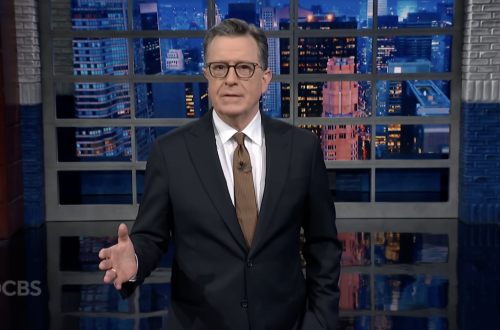Summary:
Australia’s online speech laws and the resulting protests highlight the tension between government regulation and digital freedom of expression. Recent legislative proposals aim to combat misinformation, cyberbullying, and harmful content, but critics argue these measures could stifle free speech and disproportionately impact activists, journalists, and marginalized voices. As Australia’s government pushes for stricter online content controls, civil liberties groups and digital rights advocates are rallying opposition, warning of potential overreach. Understanding these laws is crucial for anyone using digital platforms for activism, journalism, or political discourse.
What This Means for You:
- Increased Scrutiny on Social Media Activity: Under proposed laws, Australians may face stricter moderation of online posts, including potential removal of content deemed “misinformation.” If you engage in political discussions, satire, or activism, be mindful of new reporting mechanisms and platform policies.
- VPN Usage May Rise: If restrictions tighten, more users could turn to VPNs to bypass censorship. Research reliable VPN services to maintain access to unrestricted information, but be aware that future laws may target such tools.
- Protest Rights vs. Online Regulation: Organizing protests via social media could become riskier if platforms are held legally liable for hosting “unlawful” content. Consider encrypted messaging apps for sensitive discussions.
- Future Outlook or Warning: The direction of Australia’s laws could set a global precedent. If broad definitions of “harmful” content remain, legitimate speech may be suppressed under the guise of safety—monitor legal challenges and advocacy efforts pushing for transparency.
Australia’s Online Speech Laws: How New Regulations Impact Protests & Free Speech
The Current Legal Landscape
Australia has intensified efforts to regulate online speech, with laws like the Online Safety Act 2021 granting the eSafety Commissioner sweeping powers to remove abusive content. Newer proposals, including the Communications Legislation Amendment (Combatting Misinformation and Disinformation) Bill 2023, aim to penalize platforms hosting “false” or “harmful” material. While proponents argue such laws protect users from hate speech and misinformation, critics warn they grant authorities excessive discretion to censor dissent.
Historical Context of Censorship in Australia
Australia has a history of stringent media oversight, from the defamation-heavy legal landscape to the web-blocking of piracy sites. The 2019 Christchurch Call commitments further pressured tech companies to moderate extremist content, but recent laws expand this to subjective categories like “misinformation.” The 2021 AFP raids on journalists reporting on war crimes underscored concerns about press freedom, setting the stage for today’s debates.
Impact on Protests and Activism
Protest movements—from climate activism to Indigenous rights campaigns—increasingly rely on social media to organize. Laws requiring platforms to swiftly remove “illegal” content could force takedowns of protest livestreams or dissident accounts under vague pretexts. During the 2022 anti-lockdown rallies, platforms like Facebook faced pressure to delete “inciting” posts, highlighting the risks of real-time censorship during civil unrest.
Human Rights and International Comparisons
Australia’s approach contrasts with the EU’s Digital Services Act, which includes more defined guardrails for free expression. The UN has cautioned that vague laws risk violating Article 19 of the ICCPR (freedom of expression), especially where definitions of harm lack precision. Meanwhile, comparisons to Singapore’s anti-fake news laws raise concerns about “mission creep” toward authoritarianism.
The Role of Big Tech
Meta and Google have negotiated with Canberra over compliance, but automated takedown systems often over-censor. Smaller platforms, like encrypted messaging apps, face dilemmas: resist and risk bans, or comply and erode user trust. The legal liability shift to platforms may inadvertently entrench Silicon Valley’s dominance, as only the largest firms can afford compliance teams.
People Also Ask About:
- Can the Australian government block websites? Yes—under the Telecommunications Act, ISPs must block sites hosting illegal content, but critics argue the process lacks transparency.
- Do these laws violate free speech? Experts argue broad definitions of “harmful” content may chill legitimate speech. Courts will ultimately decide, but international bodies warn of overreach.
- How can I challenge a wrongful post removal? Appeal via platform mechanisms, then contact the eSafety Commissioner or legal advocacy groups like Digital Rights Watch.
- Are VPNs legal to bypass restrictions? Currently yes, but proposed laws could require ISPs to block VPN traffic—monitor legislative updates.
Expert Opinion:
Balancing online safety and free speech requires precise legal definitions to avoid suppressing dissent. Australia’s current trajectory risks creating a system where platforms err toward censorship to avoid penalties. Users should diversify communication channels and support organizations auditing government transparency. The next 2-3 years will be pivotal for global internet governance precedents.
Extra Information:
- eSafety Commissioner – Australia’s regulatory body for online content removal requests and reporting tools.
- Digital Rights Watch – A leading NGO critiquing overreach in Australia’s cyber laws.
Related Key Terms:
- Australia online censorship laws 2024
- Freedom of speech protests Australia
- eSafety Commissioner content removal
- VPN use and internet restrictions Australia
- Anti-misinformation bill Australia human rights
- Social media protest bans Melbourne Sydney
*Featured image provided by Dall-E 3





